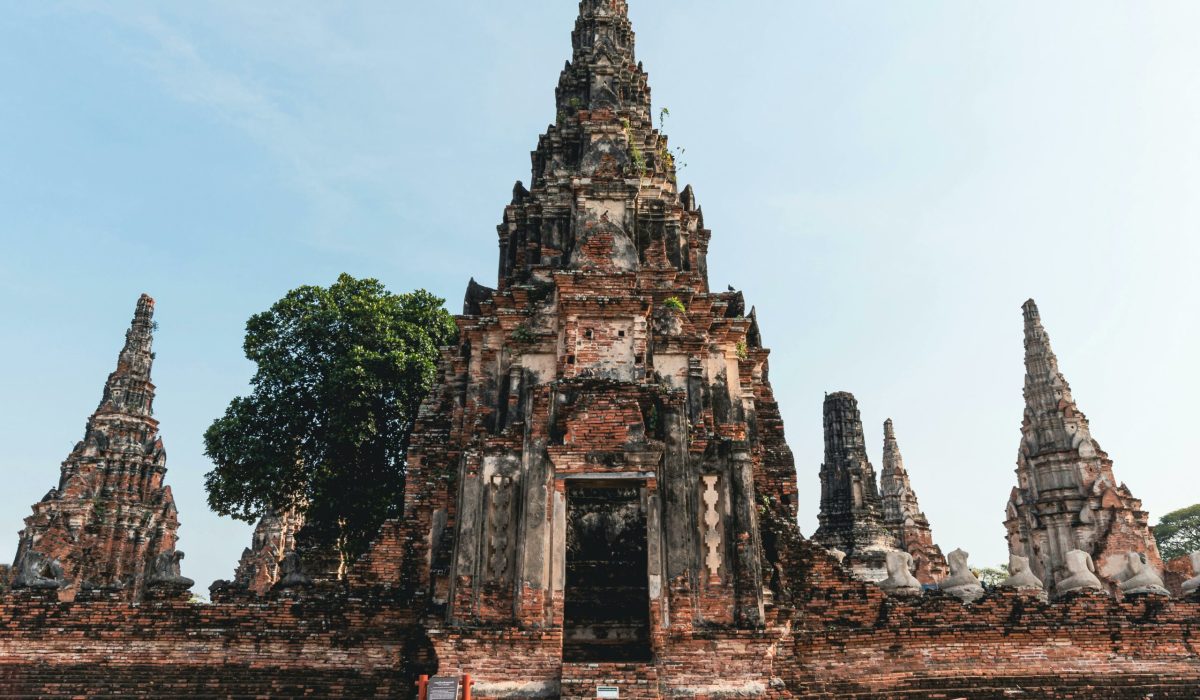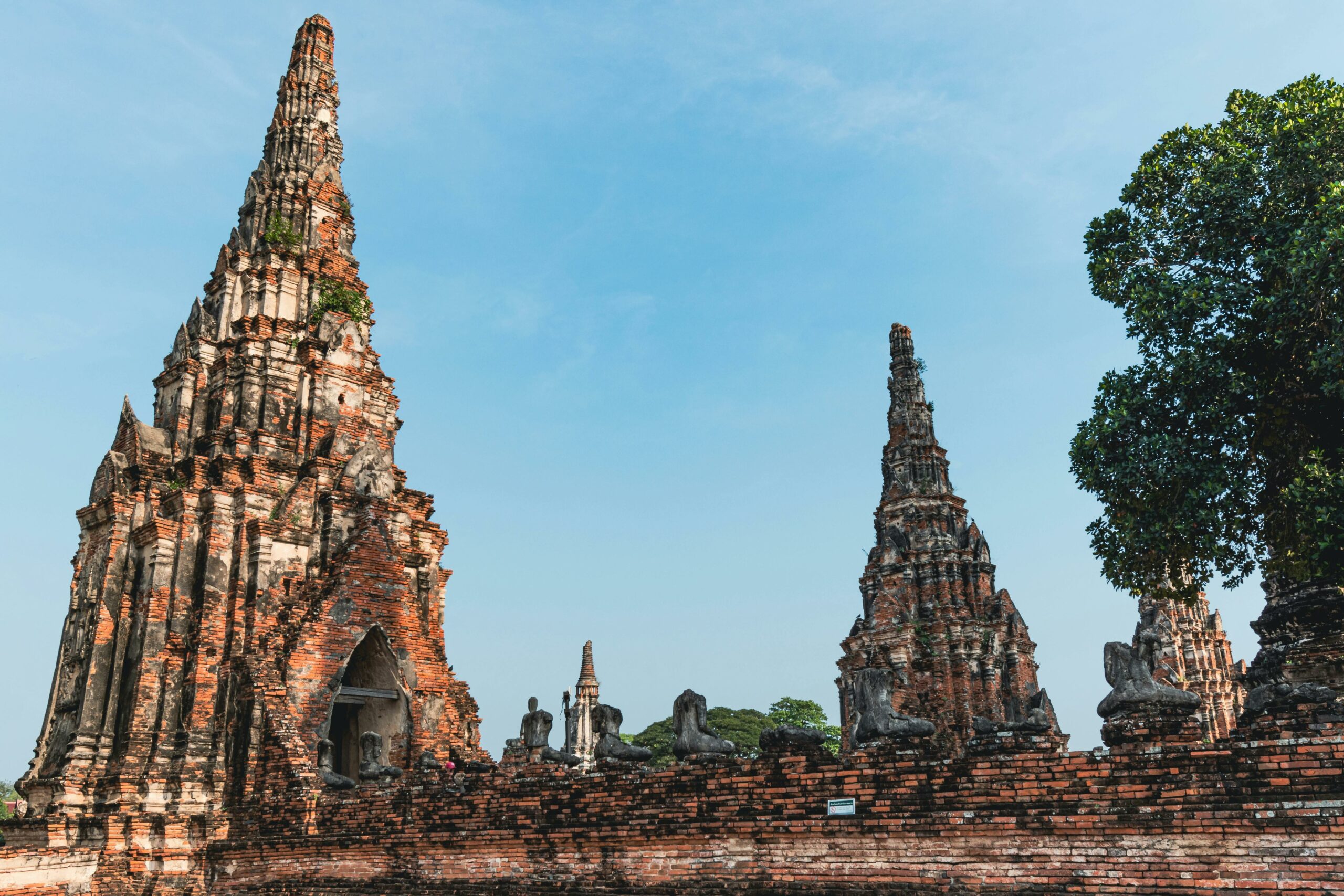Exploring Retirement Options in Thailand: A Guide

Retiring in Thailand offers a myriad of possibilities for those seeking a new chapter in life. From understanding the cost of living and navigating visa requirements to exploring healthcare services for expatriates, finding the ideal location to settle down, and selecting suitable accommodation options, there is much to consider. Cultural nuances play a significant role in this decision, as do factors such as safety and community life. This guide aims to provide insights into each of these aspects, ultimately helping retirees make informed choices about embarking on a fulfilling retirement journey in Thailand.
CONTENT
Introduction to Retirement in Thailand
Why Choose Thailand for Retirement?
Thailand attracts retirees from all over the world due to its warm climate, friendly locals, and low cost of living. The country offers a tranquillity that is often coupled with modern amenities and excellent healthcare facilities, making it a top choice for those looking to enjoy their retirement years in comfort and serenity.
The Legal Framework for Retiring in Thailand
Navigating the legalities of retiring in Thailand is crucial. The country provides specific retirement visas for foreign nationals over the age of 50. These visas require proof of financial stability and health insurance but offer the benefit of long-term residency to those looking to make Thailand their new home.
Initial Steps to Take Before Moving
Before making the move to Thailand, potential retirees should conduct thorough research and possibly visit multiple locations to find the right fit. Engaging with local expat communities online can also provide insights and real-life experiences that are invaluable in making an informed decision about where and how to retire in Thailand.
Understanding the Cost of Living in Thailand
The cost of living in Thailand is one of its most attractive aspects for retirees from Australia and beyond. Generally, the daily expenses in Thailand are considerably lower than in many Western countries, including food, housing, and transportation. Even in popular expat destinations like Bangkok, Chiang Mai, or the coastal regions, there are various accommodation options ranging from budget apartments to luxurious villas, catering to different financial capabilities.
However, it is important for retirees to be aware of the potential costs of healthcare and emergencies, which may not always be covered extensively by local insurance plans. While routine healthcare is quite affordable, more serious medical treatments can become expensive, and it’s advisable to secure comprehensive health insurance. Groceries, dining out, and entertainment are other areas where retirees can find they are able to maintain a higher standard of living compared to their home countries due to the lower costs.
Utilities such as electricity, water, and internet are also reasonably priced in Thailand. The mild climate in northern Thailand can mean lower electricity bills, as there’s less need for air conditioning compared to the hotter and more humid south. Overall, managing a budget in Thailand can be quite feasible, and with proper planning, retirees can enjoy a comfortable and financially sustainable lifestyle.

Navigating Visa Requirements for Retirees
Types of Retirement Visas
Thailand offers a specific type of visa known as the Non-Immigrant O-A Visa, or the long-stay retirement visa, which is available to foreigners aged 50 years and above. This type of visa is valid for one year but can be renewed annually without the need to leave the country, provided all requirements continue to be met. It is essential for retirees to understand the distinction between this and other types of visas to ensure compliance with local laws.
Financial Requirements for the Retirement Visa
To qualify for the retirement visa, applicants must meet certain financial criteria set by the Thai government. This includes having a monthly income or pension of at least 65,000 THB (approximately 2,700 AUD) or a Thai bank account showing a deposit of at least 800,000 THB (approximately 33,500 AUD). These financial stipulations are designed to ensure that retirees can support themselves throughout their stay without needing employment.
Additional Documentation and Health Insurance
Besides financial proof, applicants for the retirement visa must also provide various documents including a valid passport, non-criminal record certificate, and medical certificate declaring them free from prohibited diseases. As of recent updates, health insurance covering at least 400,000 THB (approximately 16,700 AUD) in inpatient treatment and 40,000 THB (approximately 1,670 AUD) in outpatient services is also required. It is crucial to keep abreast of any changes to these requirements to maintain visa validity.
Healthcare Services for Expatriates in Thailand
Healthcare in Thailand is renowned for its high standards and affordability, making it an attractive option for retirees. The country boasts a wealth of both public and private medical facilities that are well equipped and staffed by skilled healthcare professionals, many of whom are fluent in English. Private hospitals, in particular, provide top-notch services and are the preferred choice for most expatriates due to their shorter waiting times and modern facilities.
Expatriates living in Thailand are advised to have comprehensive health insurance. While the cost of healthcare is generally lower than in many Western countries, significant medical treatments or emergencies can be expensive, and having adequate coverage ensures peace of mind. Many insurance plans designed for expatriates offer extensive coverage, including access to a broader network of healthcare facilities and direct billing options.
Another aspect to consider is the availability of medications and specialist treatments. While pharmacies in urban areas are well-stocked with both local and international brands, it’s crucial for retirees who require specific medications to verify their availability and legality in Thailand. Additionally, those with particular medical needs should ensure that specialists in their required fields are accessible in their chosen area of residence in Thailand. This proactive healthcare planning is key to enjoying a healthy and worry-free retirement.
Finding the Ideal Location to Retire in Thailand
City Living in Bangkok
Bangkok offers an energetic urban environment with a myriad of conveniences and lifestyle options, attracting those who prefer a lively setting. The city is renowned for its vibrant street life, diverse culinary scene, and abundant shopping centres. Moreover, Bangkok is equipped with some of the best healthcare facilities in the country, which is a crucial consideration for retirees. However, potential downsides include the bustling traffic and higher cost of living compared to other Thai locales.
Tranquil Beach Life in Hua Hin
For those dreaming of a serene coastal retreat, Hua Hin presents an appealing option. This district offers a peaceful atmosphere combined with beautiful beaches and a slower pace of life. It is also home to a growing expatriate community, providing a sense of familiarity and community for newcomers. Hua Hin maintains a moderate cost of living and has well-equipped healthcare facilities, making it a balanced choice for retirement.
The Cool Highlands of Chiang Mai
Chiang Mai is perfect for those who appreciate cooler temperatures and a connection with nature. Located in the northern part of Thailand, it is surrounded by mountains and lush countryside, ideal for outdoor activities. The city also boasts a rich cultural heritage, manifested in its numerous temples and festivals. Chiang Mai has a thriving community of both locals and expatriates, offering a strong support network along with an affordable living cost, which is especially attractive to retirees.
Accommodation Options for Retirees
When considering accommodation options in Thailand, retirees have a plethora of choices depending on their lifestyle preferences and budget. For those seeking independence, condominiums are a popular choice as they offer security, essential amenities, and a community environment. These are available in a range of sizes and prices, and in locations from busy city centres to quiet seaside towns. Owning a condominium is the only type of property that foreigners can directly own in Thailand, making it an attractive and straightforward option.
Alternatively, renting property in Thailand is a flexible and popular choice that does not require a large upfront investment. Rental agreements are typically offered on a one-year basis but shorter terms can also be negotiated, particularly in areas with a high expatriate turnover. This flexibility is beneficial for retirees who are still exploring different regions before settling down, or who prefer not to commit to one location.
For those who value luxury and convenience, retirement communities or housing estates that cater specifically to retirees are also available. These communities often provide additional services such as healthcare, dining, and daily activities within the compound. They foster a tight-knit community atmosphere and offer a hassle-free living option, but tend to be more expensive and located further from city centres. Whatever the preference, Thailand offers a range of accommodation options that can fit diverse needs and budgets.
Cultural Considerations for Foreign Retirees
Understanding Thai Etiquette and Customs
Navigating the cultural landscape of Thailand involves understanding and respecting its rich traditions and customs. Thai culture places a high value on politeness and social harmony. Foreign retirees should familiarise themselves with basic Thai etiquette, such as the wai greeting and the importance of remaining calm and composed in all situations. Being aware of these cultural nuances can significantly enhance the integration process and the overall experience of living in Thailand.
Language Barrier and Communication
While English is widely spoken in tourist areas and major cities, learning basic Thai is highly beneficial for daily interactions, especially in less urbanised parts. Communicating in the local language not only eases everyday transactions but also shows respect towards Thai culture, which is greatly appreciated by the locals. Many community centres and private tutors offer language classes tailored to expatriates and retirees, making learning Thai more accessible.
Participating in Community and Festivals
Thailand is famous for its vibrant festivals and active community life, which provide fantastic opportunities for retirees to engage with the local culture and community. Participation in events such as Songkran (Thai New Year) and Loy Krathong (Festival of Lights) allows retirees to deeply connect with Thai traditions and build bonds with the local populace. Such interactions can enrich the retirement experience, fostering a sense of belonging and enjoyment in their new home.
Safety and Security in Thailand
Thailand is generally considered a safe country for retirees and other expatriates, with low rates of violent crime. However, as in any country, it is prudent for residents to stay aware of their surroundings and take standard safety precautions. Common issues that foreigners might face include petty thefts, such as pickpocketing in crowded areas and tourist spots. To minimise risks, retirees should secure their belongings, use reputable transportation options, and avoid flashing valuables in public spaces.
When it comes to health safety, Thailand’s tropical climate presents specific challenges, including mosquito-borne illnesses such as dengue fever and malaria in certain areas. Retirees should take preventive measures such as using mosquito repellent and securing living areas with proper screens to protect against mosquito bites. Additionally, staying hydrated and protecting oneself from the heat are crucial to avoid heat-related illnesses, which can be particularly challenging for older adults.
Legal safety is another important consideration. The Thai legal system can be difficult for foreigners to navigate due to the language barrier and different procedures. It is advisable for retirees living in Thailand to familiarize themselves with local laws and regulations. This includes road traffic rules, visa regulations, and local customs that, if violated, might lead to legal issues. Engaging with a local legal advisor or seeking assistance from expatriate groups can provide guidance and help in understanding these legal frameworks, ensuring a trouble-free stay in Thailand.
Community and Social Life for Retirees
Expat Communities and Networking
Thailand hosts a vibrant expatriate community which provides a solid network for newcomers to integrate and feel at home. Many cities have established expat clubs and social groups that organise regular meet-ups, cultural exchange sessions, and social activities, offering an excellent platform for retirees to meet like-minded individuals. These communities can be particularly helpful during the transition period, offering advice that ranges from dealing with bureaucratic processes to finding the best local markets.
Volunteering Opportunities
Engaging in volunteer work is another fulfilling way retirees can immerse themselves in the community while giving back to society. Thailand offers numerous volunteering opportunities, ranging from teaching English in schools to assisting in animal rescue organizations or environmental conservation efforts. Such activities not only contribute to personal fulfillment but also foster deeper connections with the local community and other expatriates who share similar interests.
Leisure and Cultural Activities
For retirees interested in cultural and leisure pursuits, Thailand is a treasure trove of activities. The country’s rich cultural heritage can be explored through its numerous museums, historical sites, and temples. Additionally, retirees can partake in a plethora of local classes and workshops that teach traditional Thai crafts, cooking, or martial arts like Muay Thai. These activities not only enrich the retirement experience but also provide great avenues to socialise and stay active.
Conclusion and Final Thoughts on Retiring in Thailand
Retiring in Thailand presents a compelling opportunity for those seeking a blend of adventure, tranquility, and a high quality of life at a lower cost. The country’s rich culture, welcoming community, and beautiful landscapes make it an attractive destination for retirees from around the world. With proper planning regarding visas, accommodation, and understanding local customs, Thailand can offer a fulfilling and vibrant retirement.
However, it is crucial for potential retirees to carefully consider their personal needs, especially in terms of healthcare and legal matters. Access to quality healthcare is essential, and navigating the Thai legal system can be daunting without adequate preparation and local assistance. Potential retirees should also consider their long-term financial sustainability given the fluctuating exchange rates and evolving economic conditions in Thailand.
Overall, with its friendly locals, affordable cost of living, and beautiful environment, Thailand remains a top choice for retirees. Those who take the time to thoroughly research and prepare for their new life can look forward to enjoying their retirement in this wonderful country. Fostering an open mind and embracing the local culture will immensely enhance the experience, allowing retirees to truly make the most of their time in Thailand.






